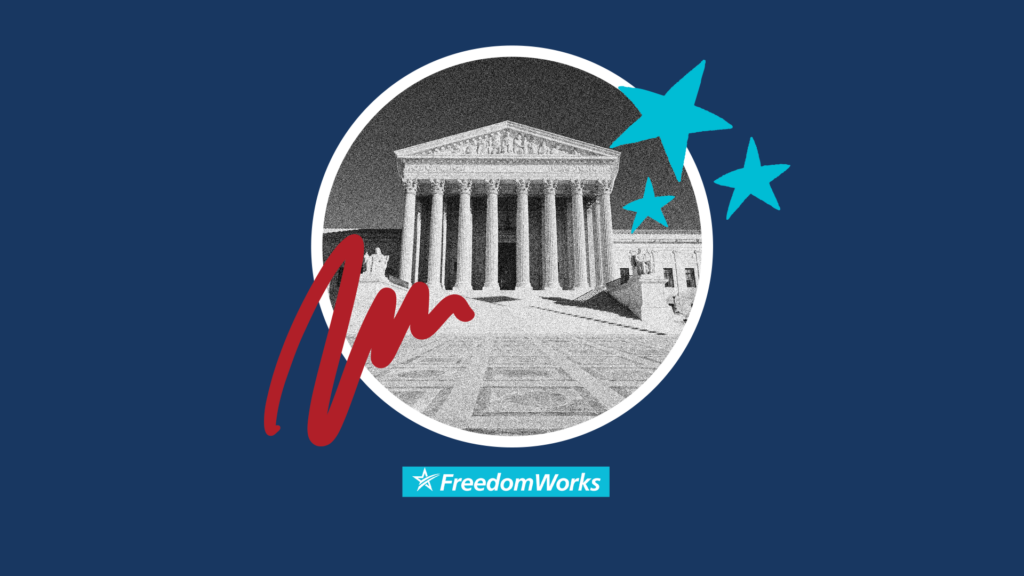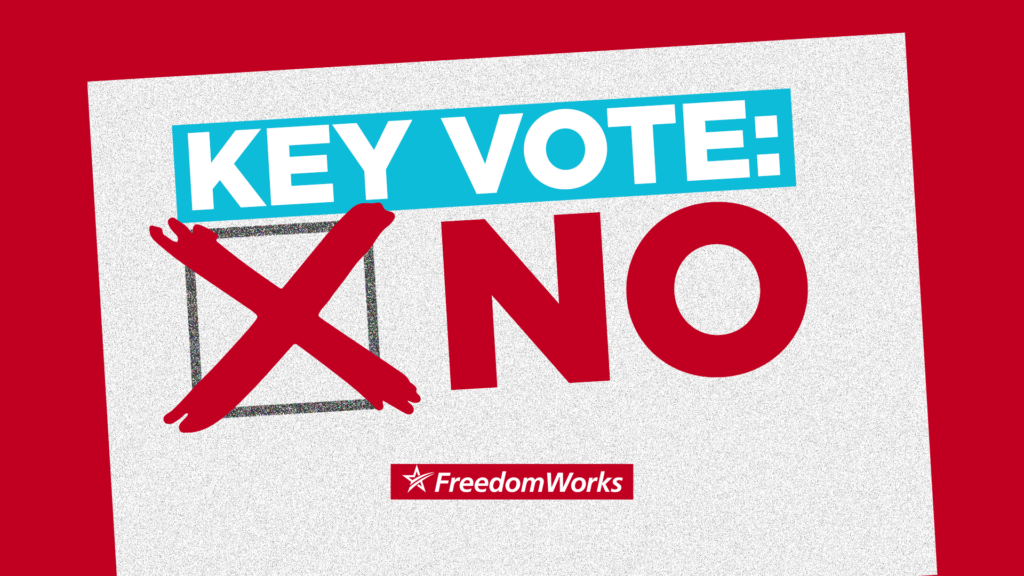The Supreme Court Decision On Obamacare: What Happened, and Where Do We Go From Here? Part 1
This week, Americans across the nation on both sides of the Obamacare debate expressed surprise, not only at the decision to uphold the Patient Protection and Affordable Care Act (PPACA), but at the reasoning used by Chief Justice Roberts in writing the majority opinion. In fact, the very reading of the decision caused much confusion. Obamacare opponents were initially elated when they thought that the individual mandate had been ruled unconstitutional, but cheers soon turned to stunned silence as the reports came in that it was ruled constitutional after all. The decision raises more questions than answers, and leaves Tea Party activists wondering what’s next.
Let’s try to unravel this mess, understand what happened, take a look at where we’re headed, and figure out what we can do to stop this trainwreck.
The information below, unless specifically cited or quoted, comes from FreedomWorks, in an attempt to answer frequently asked questions from Tea Party members and the media.
The Decision
As you’ll recall, there were four basic quesions in front of the Supreme Court:
1. Whether the Anti-Injunction Act (AIA) regards the individual mandate as a tax, and as such federal courts lack jurisdiction to decide this case until the individual mandate goes into effect in 2014.
2. Whether Obamacare’s requirement that individual Americans must purchase and maintain federally-approved forms of health insurance starting in 2014—the infamous individual mandate in Section 1501—exceeds Congress’ powers under the Commerce Clause, Taxing Clause, and/or Necessary and Proper Clause of the Constitution.
3. Whether Obamacare’s massive Medicaid expansion that requires states to pay part of the cost and could penalize any state that refuses to go along with these requirements by stripping all Medicaid funds from that state, found in Section 2001, exceeds Congress’ power under the Spending Clause of the Constitution, thereby violating state sovereignty under the Tenth Amendment.
4. If either the individual mandate (or the Medicaid expansion) is struck down, whether it can be “severed” from the rest of the 2,700-page Obamacare statute, and if not, whether the invalid section can be partially severed to save most of Obamacare, or whether it is “nonseverable,” meaning the entire statute must be struck down completely.
Because the individual mandate was upheld, severability became moot and was not considered by the Court. And because the Court ruled, for the purposes of the AIA, that the mandate does not function as a tax, they found that they had jurisdiction to render a decision. The Court holds that the AIA does not apply, because the PPACA does not require that the penalty for failing to comply with the individual mandate be treated as a tax for purposes of the AIA. So in this instance, Roberts ruled based on the way the PPACA is written. It is only later, when ruling the mandate constitutional under the taxing authority of Congress, that he renders a new interpretation of the Constitution while rewriting the statute.
This distinction is perhaps best clarified by the dissenting opinion, written by Justice Scalia:
[T]o say that the Individual Mandate merely imposes a tax is not to interpret the statute but to rewrite it. Judicial tax-writing is particularly troubling. Taxes have never been popular, see, e.g., Stamp Act of 1765, and in part for that reason, the Constitution requires tax increases to originate in the House of Representatives. See Art. I, §7, cl. 1. That is to say, they must originate in the legislative body most accountable to the people, where legislators must weigh the need for the tax against the terrible price they might pay at their next election, which is never more than two years off. The Federalist No. 58 “defend[ed] the decision to give the origination power to the House on the ground that the Chamber that is more accountable to the people should have the primary role in raising revenue.” United States v. Munoz-Flores, 495 U. S. 385, 395 (1990). We have no doubt that Congress knew precisely what it was doing when it rejected an earlier version of this legislation that imposed a tax instead of a requirement-with-penalty. See Affordable Health Care for America Act, H. R. 3962, 111th Cong., 1st Sess., §501 (2009); America’s Healthy Future Act of 2009, S. 1796, 111th Cong., 1st Sess., §1301. Imposing a tax through judicial legislation inverts the constitutional scheme, and places the power to tax in the branch of government least accountable to the citizenry. […]
The Government’s opening brief did not even address the question—perhaps because, until today, no federal court has accepted the implausible argument that §5000A is an exercise of the tax power. And once respondents raised the issue, the Government devoted a mere 21 lines of its reply brief to the issue. Petitioners’ Minimum Coverage Reply Brief 25. At oral argument, the most prolonged statement about the issue was just over 50 words. Tr. of Oral Arg. 79 (Mar. 27, 2012). One would expect this Court to demand more than fly-by-night briefing and argument before deciding a difficult constitutional question of first impression.
So, the statute is not a tax when considered against the AIA; and it is unconstitutional when viewed in the context of the Commerce Clause; but it is constitutional under the power of Congress to lay and collect taxes.
Here is the conclusion to the dissent, in case you were still in doubt as to the intentions of Justice Scalia:
The Court today decides to save a statute Congress did not write. It rules that what the statute declares to be a requirement with a penalty is instead an option subject to a tax. And it changes the intentionally coercive sanction of a total cut-off of Medicaid funds to a supposedly noncoercive cut-off of only the incremental funds that the Act makes available.
The Court regards its strained statutory interpretation as judicial modesty. It is not. It amounts instead to a vast judicial overreaching. It creates a debilitated, inoperable version of health-care regulation that Congress did not enact and the public does not expect. It makes enactment of sensible health-care regulation more difficult, since Congress cannot start afresh but must take as its point of departure a jumble of now senseless provisions, provisions that certain interests favored under the Court’s new design will struggle to retain. And it leaves the public and the States to expend vast sums of money on requirements that may or may not survive the necessary congressional revision.
No wonder people are so confused.
The one partial victory in the ruling was in regards to the ability of the Federal Government to tell states how to spend the Medicaid dollars they get under the massive new expansion of that program. The question was whether the federal government has the right to impose a minimum threshold of 133% of the federal poverty level for Medicaid eligibility, or if this a usurpation of states’ rights by the federal government. The court ruled that states have a choice about whether to participate in the expansion of eligibility and the Federal government does not have the power to terminate states’ Medicaid funds if states do not participate (they can continue to receive funds for the rest of the program).
As stated by FreedomWorks:
Make no mistake. A fraud has been perpetrated on the American people.
o This is the same bait and switch employed by FDR to slip Social Security past the people and the court. It was “not a tax” when sold to Congress and the people by the Executive, but it “was a tax” when argued before the Court.
o The Obama Administration has always told the American people and Congress that the mandate penalty is not a tax. But in court, they’ve argued that it is a tax — precisely as a desperate, last-ditch, firewall strategy to save their unpopular law.
o It’s “Alice in Wonderland” logic: it’s a tax for purpose A, but not for purpose B — doesn’t stand up to rational scrutiny. (In an early part of the opinion, Roberts insists the mandate is “not a tax, but rather a penalty” for purposes of considering whether it falls under the Tax Anti-Injunction Act. Later, he declares it to be a tax rather than a penalty for purposes of considering whether it is a permissible exercise of the taxing power.)
This is especially insulting to the American people, because we have known all along that Pelosi, Reid and Obama have been lying to us. Oh no, they say, your taxes won’t go up.
Here’s President Obama in a September 20, 2009, ABC television interview:
STEPHANOPOULOS: You were against the individual mandate during the campaign?
OBAMA: Yes.
STEPHANOPOULOS: Under this mandate, the government is forcing people to spend money, fining you if you don’t. How is that not a tax? …
OBAMA: [R]ight now everybody in America, just about, has to get auto insurance. Nobody considers that a tax increase. …
STEPHANOPOULOS: Merriam Webster’s Dictionary: Tax — “a charge, usually of money, imposed by authority on persons or property for public purposes.” … But you reject that it’s a tax increase?
OBAMA: I absolutely reject that notion.
Well we now have confirmation from the Supreme Court that it is, in fact, a big fat tax increase.
In Part 2, I will discuss the devastating effects of this statute if we allow it to stand. In Part 3, you will be given your marching orders and how we can and WILL get this monstrosity repealed.




